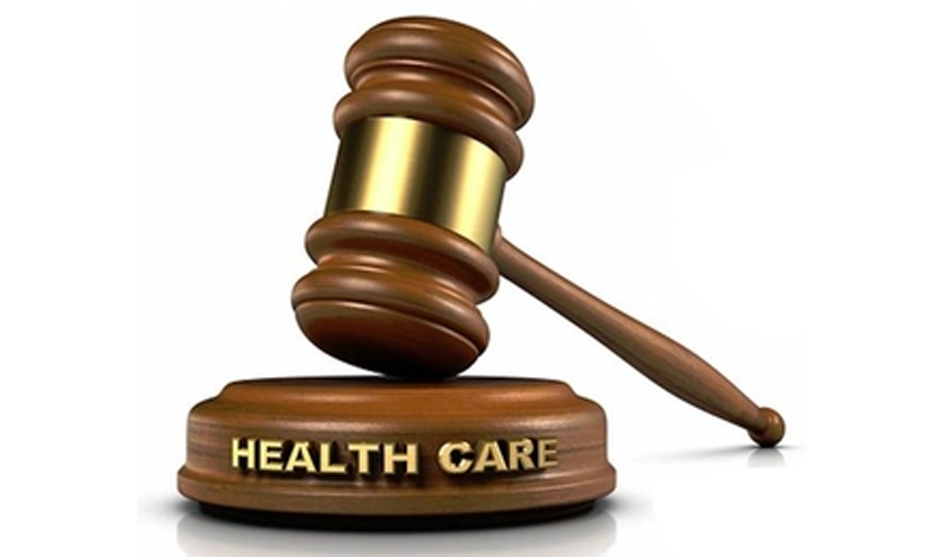
A federal district court judge in Little Rock has struck down and permanently enjoined an Arkansas law that banning gender-affirming care for transgender youth according to a press release from the ACLU.
In his ruling today (Tuesday, June 20) in Brandt et al v. Rutledge et al, U.S. District Judge James M. Moody Jr. found that the law violates the constitutional rights of transgender youth, their parents and their medical providers, held that plaintiffs prevailed on all their claims and found that the ban violated the Equal Protection Clause, the Due Process Clauses, and the First Amendment of the U.S. Constitution.
The decision follows a weeks-long trial in the fall of 2022 and is the first final merits ruling in the country on such a law.
The Texas Legislature enacted and Gov. Greg Abbott signed a similar law just last month, and trans advocates have already pledged to challenge the Texas law as well.
The Arkansas Legislature passed the measure called the “Save Adolescents From Experimentation Act” in March 2021 after both the state House and Senate voted by large margins to override a veto by Gov. Asa Hutchinson. The ACLU filed the lawsuit challenging it the next month and three months later, a week before the law was set to go into effect, Moody issued a temporary injunction blocking it from being enforced while the matter is in court.
A three-judge panel on the 8th U.S. Circuit Court of Appeals upheld Moody’s injunction in August of 2021.
Dylan Brandt, a 17-year-old transgender boy from Arkansas who, with his mother, was among those who filed the lawsuit, said today he is “so grateful the judge heard my experience of how this health care has changed my life for the better and saw the dangerous impact this law could have on my life and that of countless other transgender people.
“My mom and I wanted to fight this law not just to protect my health care, but also to ensure that transgender people like me can safely and fully live our truths. Transgender kids across the country are having their own futures threatened by laws like this one, and it’s up to all of us to speak out, fight back, and give them hope,” Brandt continued.
Holly Dickson, executive director of the ACLU of Arkansas, added, “We’re relieved and grateful that the court has ruled in favor of these brave Arkansans and their rights, protecting life-saving care that should be available to all trans youth.
“This decision sends a clear message,” Dickson said. “Fear-mongering and misinformation about this health care do not hold up to scrutiny; it hurts trans youth and must end. Science, medicine and law are clear: Gender-affirming care is necessary to ensure these young Arkansans can thrive and be healthy.”
And Chase Strangio, deputy director for transgender justice at the ACLU’s LGBTQ & HIV Project, concluded, “This ruling offers an enormous relief to transgender youth and their families across Arkansas and across the country. In state after state, transgender people are being forced to fight for our most basic rights, including access to the health care many of us need to live. This victory shows that these laws, when tested by evidence, are indefensible under any standard of constitutional review. We hope that this sends a message to other states about the vulnerability of these laws and the many harms that come from passing them.
“We’re so thankful for the bravery of our clients and the tireless work of advocates in Arkansas.”
The law was challenged by four families of transgender youth and two doctors. The law also barred any state funds or insurance coverage for gender-affirming health care for transgender people under 18, and it would have allowed private insurers to refuse to cover gender-affirming care for people of any age.
Similar laws in Alabama, Florida and Indiana are blocked by preliminary injunctions from federal courts. In 2023 thus far, the ACLU and its nationwide affiliate network have challenged seven new laws similar to Arkansas’s ban.
The lawsuit in Arkansas was filed by the ACLU’s Jon L. Stryker and Slobodan Randjelović LGBTQ & HIV Project, the ACLU of Arkansas, and the law firms of Sullivan & Cromwell LLP, Gill Ragon Owen, and the Walas Law Firm.
For more on Brandt v. Rutledge, click here.
— Tammye Nash
